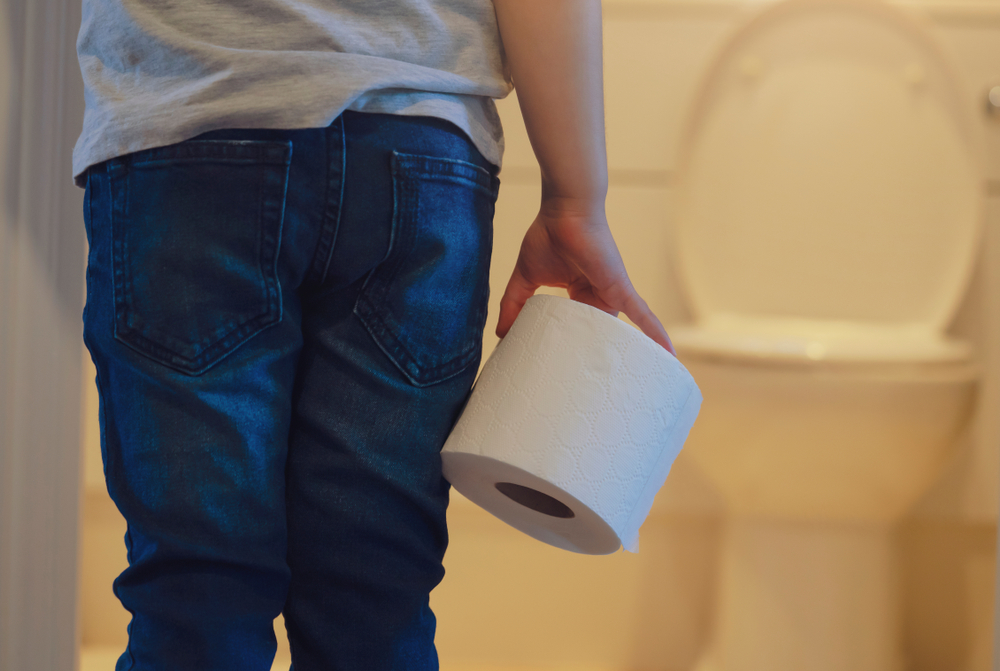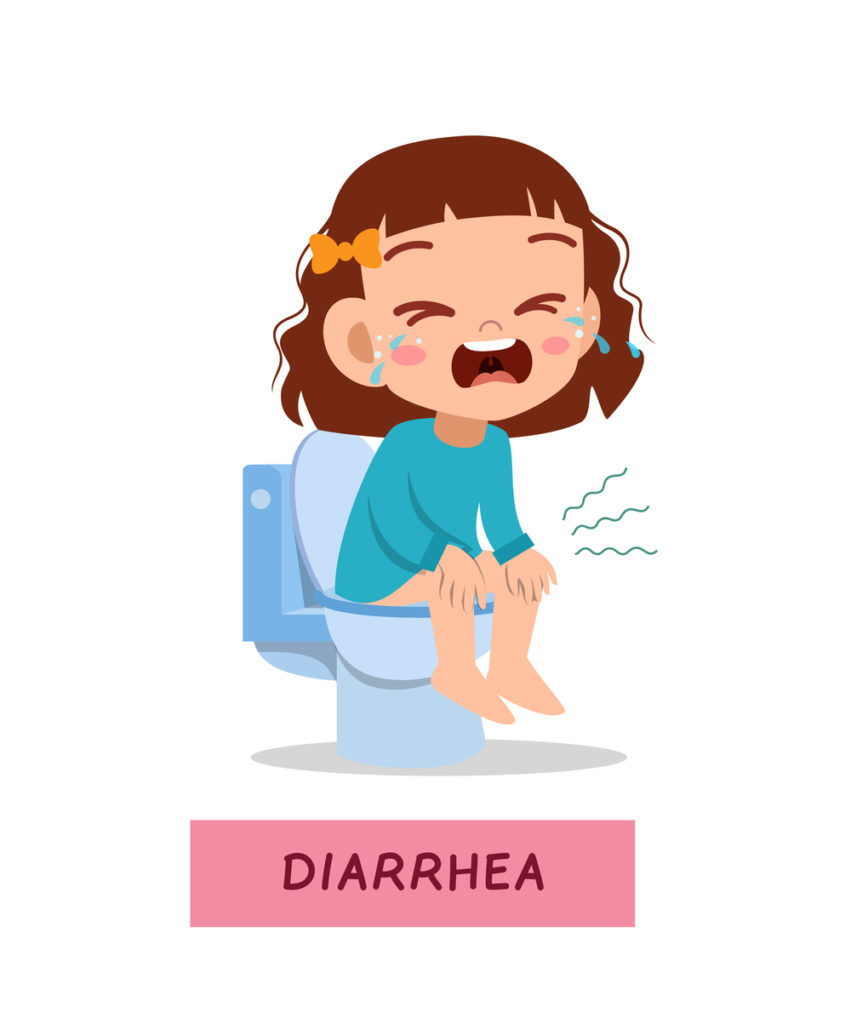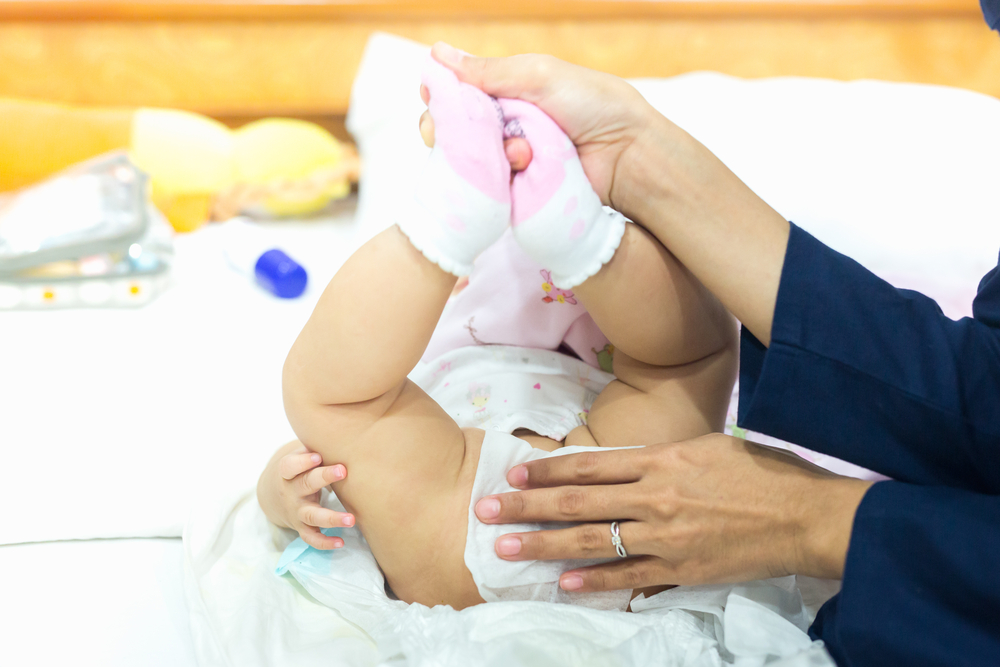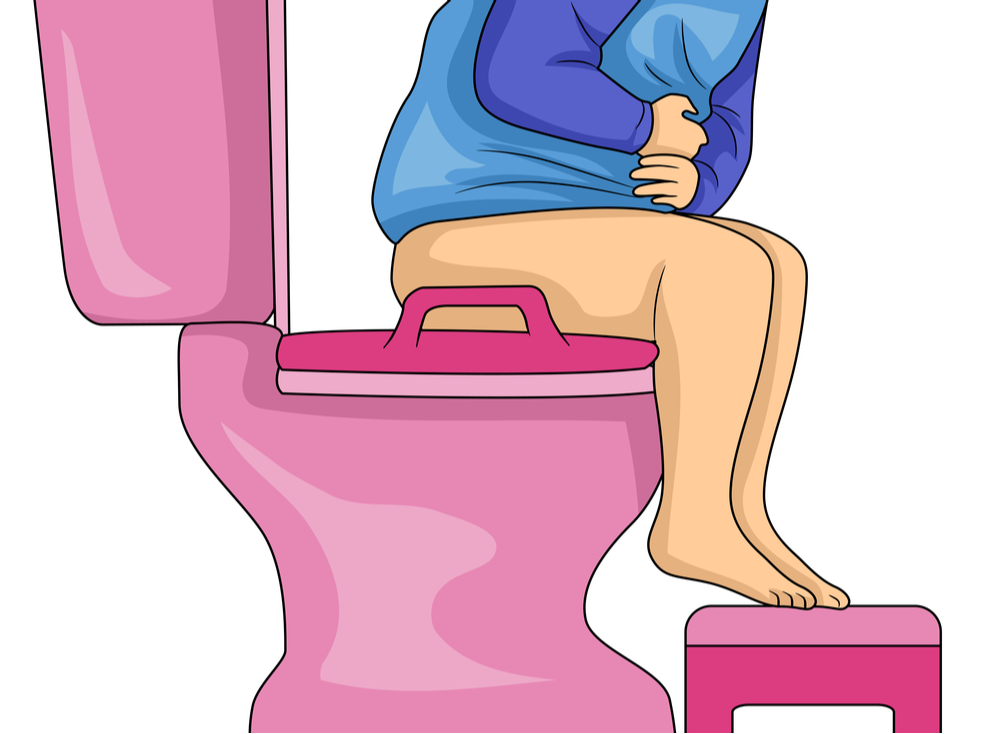Did you notice that your toddler is having to go to the bathroom more often than usual? Is he/she passing out loose and watery stool? If the answer is yes, then your toddler might be suffering from toddlers’ diarrhea.
Don’t fret, diarrhea usually is not a cause for alarm. In fact, healthy children often have non-specific diarrhea at one point or another during childhood. Furthermore, clinical studies show that this common problem in toddlers is not due to any underlying health issues.

In most cases, toddlers’ diarrhea goes away after two days. However, in an instance that your toddler’s diarrhea lasts more than 2 days, it may be a sign of a more serious problem.
In this post, you’ll learn about diarrhea and how to take care of it when it happens.
Let’s get to it!
First, What Is Diarrhea?
Most times, diarrhea is the body’s way of getting rid of germs and unwanted substances. It is characterized by loose, watery stools that occur more frequently than normal.
Sometimes, diarrhea may even come with fever, nausea, vomiting, dehydration, or even rashes.
Toddler’s diarrhea is not a serious problem and it usually resolves on its own after a few days. In other severe cases, it doesn’t go away on its own and it could be a sign of an underlying disease.
Types of Diarrhea
Depending on the duration it takes for diarrhea to resolve, it can be primarily classified into two groups:
1. Acute diarrhea
This type lasts for about 2 days and goes away on its own. It is primarily caused by ingestion of food or water that has been contaminated by bacteria. However, acute diarrhea in toddlers may also result from a viral infection.
2. Chronic diarrhea
On the other hand, chronic diarrhea lasts for a few weeks and is usually a sign of another health problem or disease condition. A classic example of such a disease is irritable bowel syndrome.
What Are The Symptoms of Toddlers’ Diarrhea?
Children affected by toddlers’ diarrhea develop three or more watery stools per day. This is the most obvious symptom. In addition, diarrhea may be accompanied by a level of abdominal pain, pale stool, or watery stool.
Apart from the classic symptoms of diarrhea, a healthy child doesn’t require further tests or treatment as most symptoms resolve on their own.
Here are the most common symptoms of diarrhea in toddlers:
- Nausea
- Swelling
- Bloody stools
- Dehydration
- Incontinence
- Weight loss
As we mentioned earlier, severe diarrhea may be a sign of a serious health problem. As a result, if your child’s symptoms do not clear off within a few days, please contact your doctor for a proper diagnosis.
What Causes Diarrhea In Children?
There are many reasons why a child can get diarrhea although the exact cause is not always clear. The most probable reason is an imbalance in the fluid content of the digestive tract. Normally, the intestines act to regulate the amount of food absorbed and excreted.

A slight increase in fluid left in the intestine may cause stools to be more frequent or watery than normal. Here are a few factors that can contribute to the imbalance:
- Bacterial infection
- Viral infection
- Food intolerance may lead to the inability to digest certain food properly
- Food allergy
- Intestinal bowel syndrome
- Surgery on the stomach or gallbladder
- Certain medications like laxatives or antibiotics
- Food poisoning
- Food that is high in sugar
What Are The Complications Of Diarrhea In Children
Acute diarrhea can be harmless. However, with chronic diarrhea, the greatest complication is dehydration. Dehydration is a situation where the body lacks enough water. Children with weakened immune systems are more prone to this.

Dehydration may be mild, moderate, or severe. Mild dehydration does not have life-threatening effects. On the other hand, moderate and severe dehydration may be life-threatening as it places stress on the lungs and heart.
Signs of dehydration include:
- Excessive thirst
- vomiting
- tiredness
- fever
- dark urine
- dizziness
- dry mouth
How To Treat Diarrhea In Children
If the child has acute diarrhea which is represented by mild symptoms, there is no particular treatment required. The disease will resolve on its own. However, treatment often depends on how severe the condition is or the cause of diarrhea.
In a lot of cases, treatment involves primarily replacing lost fluids. This can be done by giving glucose-electrolyte solutions to affected children. In other cases, such as when a bacterial infection is the cause of diarrhea, antibiotics may be prescribed.

How To Prevent Diarrhea
The following tips are helpful in preventing the spread of diarrhea.
- Proper handwashing habits in other to reduce the spread of bacteria that may cause diarrhea.
- Ensure that your child’s drinks and food are safe for consumption.
- A rotavirus vaccine can prevent diarrhea caused by rotaviruses.
- Avoid food with high sugar content.
- Incorporate healthy fats such as nuts, nut butters, eggs, and dairy fat into your child’s diet.
Conclusion
Diarrhea is most times not a cause for alarm but you should inform your doctor if you suspect that your child has chronic diarrhea. Remember, chronic diarrhea may have life-threatening complications if not treated on time. Otherwise, the symptoms of diarrhea are usually clear on their own and are not life-threatening.
Your baby is going to be just fine.

